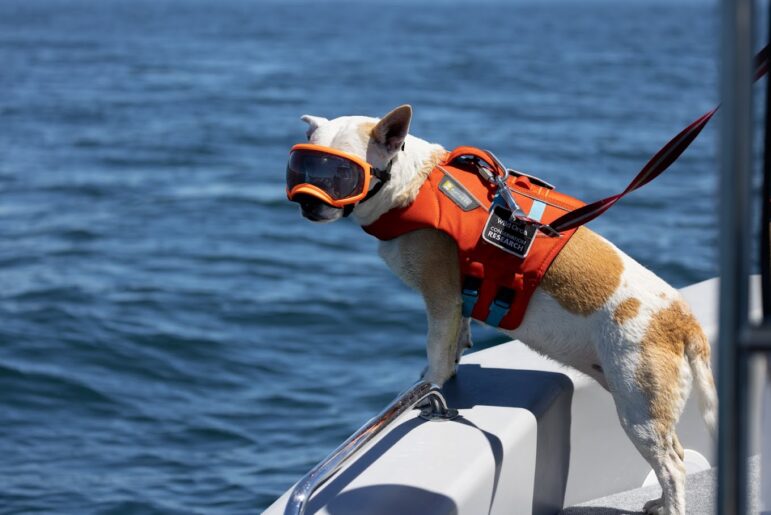John Rosapepe, Endangered Species Coalition (ESC) Pacific Northwest Representative is pictured with Dr. Giles, Wild Orca’s Science and Research Director and her companion and scent dog Eba, pictured below.
Doctor Giles gave a talk before 65 people at an ESC organized event in Bellingham , Washington where she focussed on her research on the J, K & L pods of the Endangered Southern Resident Killer whales.
The killer whales found in Washington State’s Salish Sea and off the West Coast continue to struggle for survival. Their numbers have fallen from 98 animals to only 75 during the past two decades because of lack of food, primarily Chinook salmon, noise disturbance, and toxic pollutants.
While ESC celebrated two new calves this year, over ten animals were classified as malnourished along with continuing miscarriages amongst the whales.
Dr, Giles uses Eba’s sense of smell to find killer whale feces in the water up to a mile away. She is then able to analyze a sample to learn about the animal’s nutrition status, stress hormones, pregnancy hormones. We can tell if a female is pregnant — and how pregnant — based on sex hormones associated with different stages of pregnancy. We can tell things about the gut microbiome, fungus and bacteria.
The Endangered Species Coalition along with other groups is fighting for the removal of the four lower Snake River dams which have decimated the spring/summer Chinook salmon runs, which are the primary source of food for the Southern Killer Whales when they forage off the West Coast.



